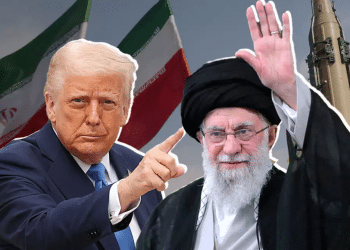For three decades, UN Watch has stood as a beacon of light in Geneva, scrutinizing the United Nations' adherence to its founding principles. Founded by Morris Abram – a prominent civil rights lawyer who helped free Dr. Martin Luther King Jr. from prison and won a landmark Supreme Court case for black voting rights – the organization has evolved from its 1993 origins to become one of the most persistent watchdogs of the international body.
At its helm is Hillel Neuer, an Orthodox Jew and Canadian-born international lawyer. From his base in Geneva, where he has been for the last 20 years, Neuer has become a formidable presence in diplomatic circles, regularly testifying in Washington, the Hague, European parliaments, and, of course, the United Nations. Under his leadership, UN Watch has maintained its dual mandate: monitoring the UN's adherence to its charter while combating antisemitism and discrimination against Israel.
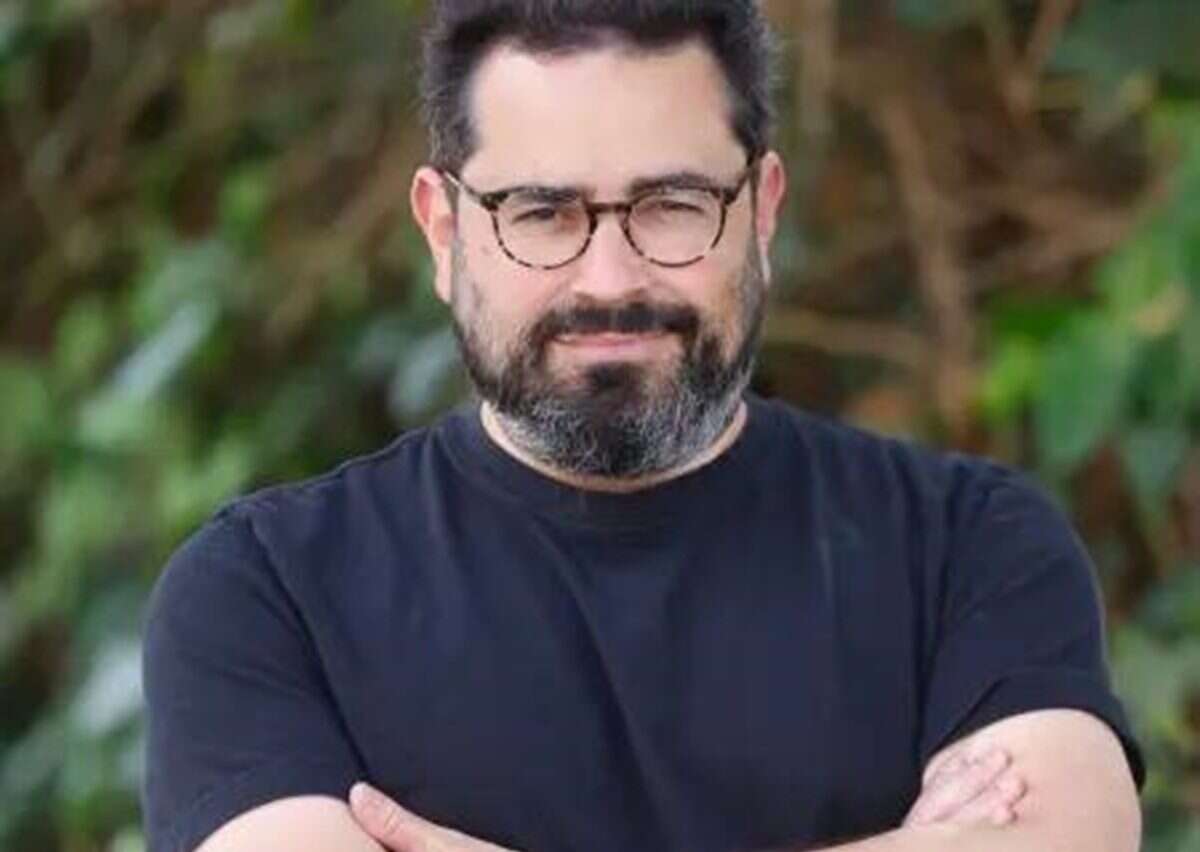
Q: How did you get involved in UN Watch?
"I had been active for Israel since I was in college. I studied law and political science and worked for a think tank in Jerusalem called the Shalem Center. When I was in law school, I was writing essays and op-eds for newspapers. When I studied law at McGill University in Montreal, my mentor was Professor Irwin Cotler, who's a distinguished human rights lawyer. He was a lawyer for Natan Sharansky when he was a prisoner in Russia and for many human rights activists who were put in prison. He was my teacher and a very big influence in the work that I've done."
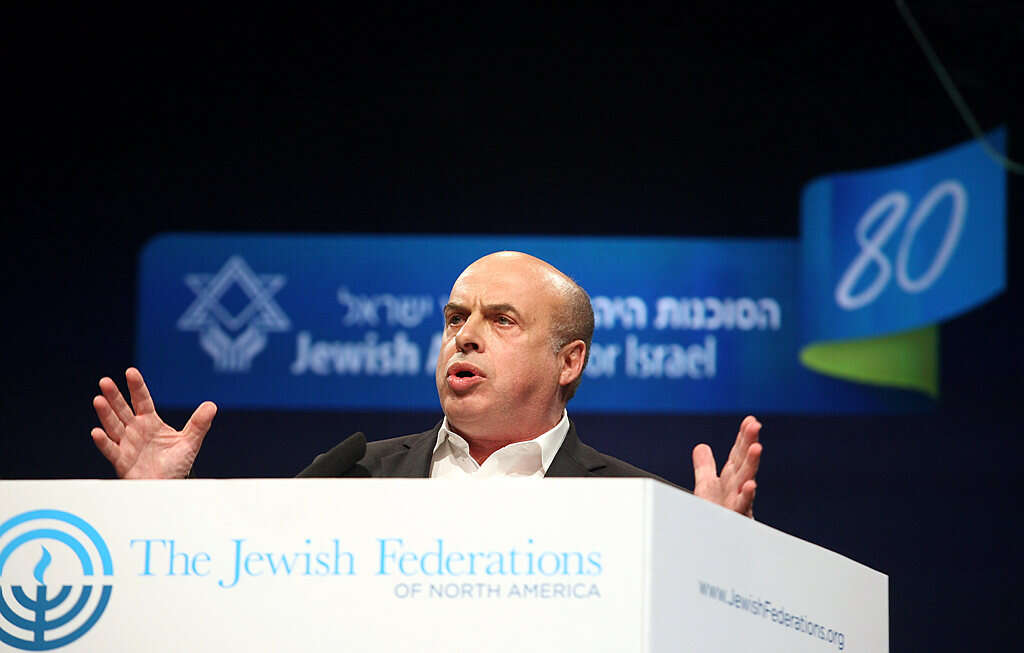
Q: What does your daily schedule look like?
"It varies because I would say there's about three months a year when the United Nations Human Rights Council based in Geneva is in session – September, March, and June. When they're in session, I'm participating in debates. When the UN is not in session, we're constantly monitoring and responding to what's going on at the UN. I'm very active on social media, day and night."
"For example, today, we exposed the UN agency UNRWA, how their top officials routinely meet with Hamas leaders and cooperate with them, and how UNRWA teaches their students to call for the killing of Jews. I was busy preparing the Twitter thread with evidence and making the case about UNRWA's complicity with terrorism. Our work involves a lot of communication. It's writing, whether on social media or writing articles. I do a lot of interviews like this one."
EXPOSED: UNRWA chiefs secretly met top terrorists, telling them: "We are united, no one can separate us." In Feb. 2017, UNRWA's @PKraehenbuehl met Hamas' Ali Baraka & Islamic Jihad's Abu Imad al-Rifai, who sent suicide bombers to kill 🇺🇸🇬🇧 troops in Iraq. https://t.co/1FucsZBXE7 pic.twitter.com/Ga88XrcVG8
— Hillel Neuer (@HillelNeuer) November 21, 2024
Q: How did UN Watch find its sources for this case?
"Our research team is just going on the internet and finding things on social media. Most of the material that we're reporting are things that are openly available, which either no one is looking for or no one really cares. We know how to look for things. We're showing screenshots of what they say, linking to their own Facebook pages or their own websites."
Q: Have you experienced personal threats or received threats to the UN Watch?
"We anger a lot of people because we don't just criticize Islamic terrorist groups like Hamas or Hezbollah. Throughout the year, we bring human rights heroes from Russia, China, Cuba, Zimbabwe, Venezuela, Belarus, and North Korea. We are a thorn in the side of many of the world's worst regimes. I try not to let it get in the way. They're trying to hold you back and punch you down. You've got to stay focused on the important work and just tell the truth."
Q: Where were you on Oct. 7?
"I was visiting Jerusalem and I first heard an alarm around 8 in the morning. I went into the bomb shelter, grabbed my phone, even though it was Shabbat, and started tweeting there. I normally don't tweet on Shabbat."
Q: How has your job changed after Oct. 7?
"It's been very intense. Many of the things we're doing are the same. We were fighting UN bias for many years, and now, it's just on steroids. The speed has been increased exponentially. If you have one awful UN thing that happens maybe once a week or once a month, you might have multiple awful UN distortions happening in a single day. There's been a tsunami of hate around the world, and the UN is a part of it, unfortunately."
Q: What do you think of Trump's pick of Elise Stefanik as US ambassador to the UN?
"Elise Stefanik is famous for what she was able to do against the heads of Harvard and Penn. She exposed them before the world, asking them simple questions about how they tolerated calls for genocide against Jews and saw how morally bankrupt they were. I think that was extraordinary. We're hoping she's going to bring that same fierce pursuit of justice to the UN. I see her as kind of a B-52 bomber. She's heading into the UN, which, in John Bolton's words, is a 'target-rich environment.' And the job of folks like me who are on the ground, who've been inside the UN for many years, is if she's the B-52 bomber, then our job is just to call in the targets. I hope to be working with her closely."
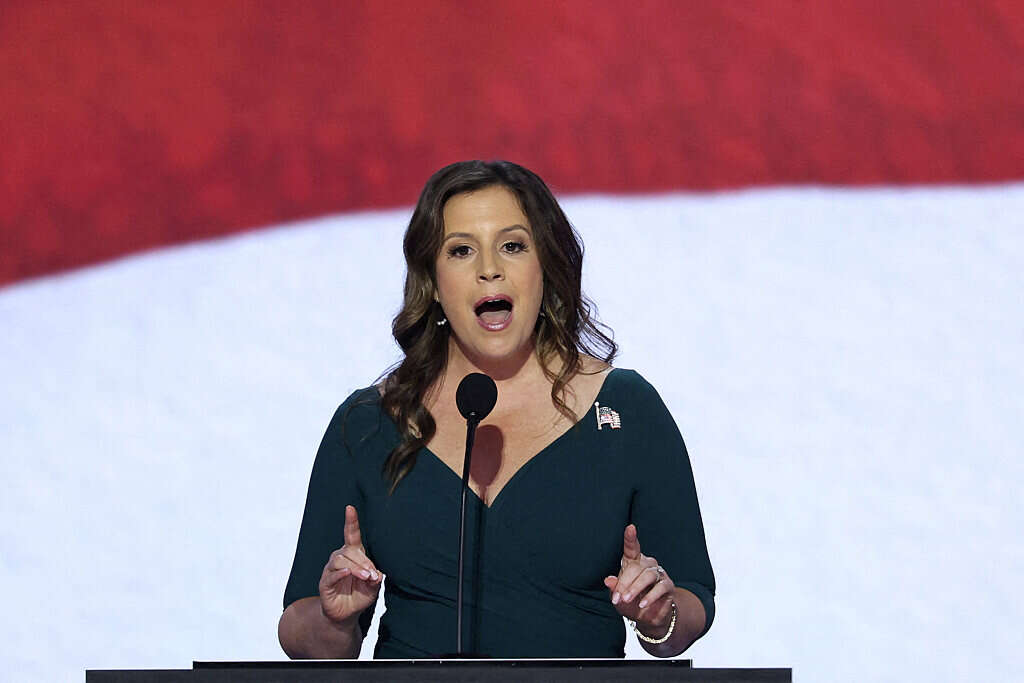
Q: How does she compare to the current US Ambassador to the UN Linda Thomas-Greenfield?
"The current ambassador is a career diplomat, so it's just a completely different type of person. I've had no personal interaction with her."
Q: The mission statement of UN Watch is "to monitor the performance of the United Nations by the yardstick of its own charter." How do you feel the UN is faring in this sense today? Is the UN failing to execute its charter?
"The UN is huge. There are numerous agencies, and some agencies perform better than others. But sadly, some of the main agencies are really falling short. Certainly, the Human Rights Council, in which 60% are dictatorships. China is a member. Cuba is a member. Eritrea, which has slave labor, is a member. Qatar, which sponsors terrorism, is a member. So that's a complete failure. The body that's supposed to be the leader of human rights at the United Nations is controlled by dictatorships."
"They appoint experts who are, in fact, enemies of human rights. I'll give you two examples. UN Rapporteur on Palestine Francesca Albanese is openly supporting Hamas. She told Hamas, 'You have the right to resist' at a Hamas conference. She said that 'America is subjugated by the Jewish lobby.' She routinely spreads blood libels against Israel. She often compares Israel to the Third Reich, to the Nazis. It's really the worst form of antisemitism. She's a UN expert of the Human Rights Council."
Francesca Albanese projects antisemitism and support for Hamas terrorism around the globe.
She has arrived in New York to project hate in the UN and campuses across the city. So we decided to project the truth: https://t.co/2XEWJbYm8O#FireFrancesca: ✍️ https://t.co/6FNaka4tFv pic.twitter.com/cCGuURoUyV
— Hillel Neuer (@HillelNeuer) October 30, 2024
"There's another expert. Alena Douhan was appointed to advocate against sanctions. Whenever Western countries impose sanctions on a dictatorship like Iran, Zimbabwe, Venezuela, Cuba, or Syria, then this UN official will say that those sanctions are themselves a violation. She said if there are problems in Iran, it's because of American, British, and Canadian sanctions. She most recently went to China and said the Uighurs are treated very well. It's a completely inverted Orwellian upside-down situation where you have the worst dictatorships being championed by a UN so-called human rights expert. The UN Human Rights Council, the body that is supposed to be a defender of human rights, is the complete opposite."
"Iran was a member of the Women's Rights Commission of the UN until recently. Thanks to our campaign, we are the ones who helped get them expelled from that body. Now, Saudi Arabia is going to be the chair. Even though Saudi Arabia is improving in many ways, still the situation of women is not the best in the world, let's just say. It's absurd that Saudi Arabia has been made the chair of that body. Iran was elected to certain UN positions dealing with disarmament, which is absurd because Iran is arming terrorist groups and pursuing nuclear weapons illegally."
Q: Do you still support the UN as an institution? Is there still hope for it?
"The UN is huge. It's not going away. And the UN is what the member states make of it. Sadly, too often, democracies do not speak out. They just go along to get along. We need our democracies, Britain, France, Germany, the US, Canada, and Australia, to speak out more, introduce actions against dictatorships, push back against the election of dictatorships, and stop the demonization and singling out of Israel on a repeated basis."
"It's always going to be a problem because half the world's governments are dictatorships, and the UN is so removed from the citizens. The more removed you are from the citizen, the more you'll get a lack of accountability. There's a lot of corruption inside the UN. There's very little oversight."
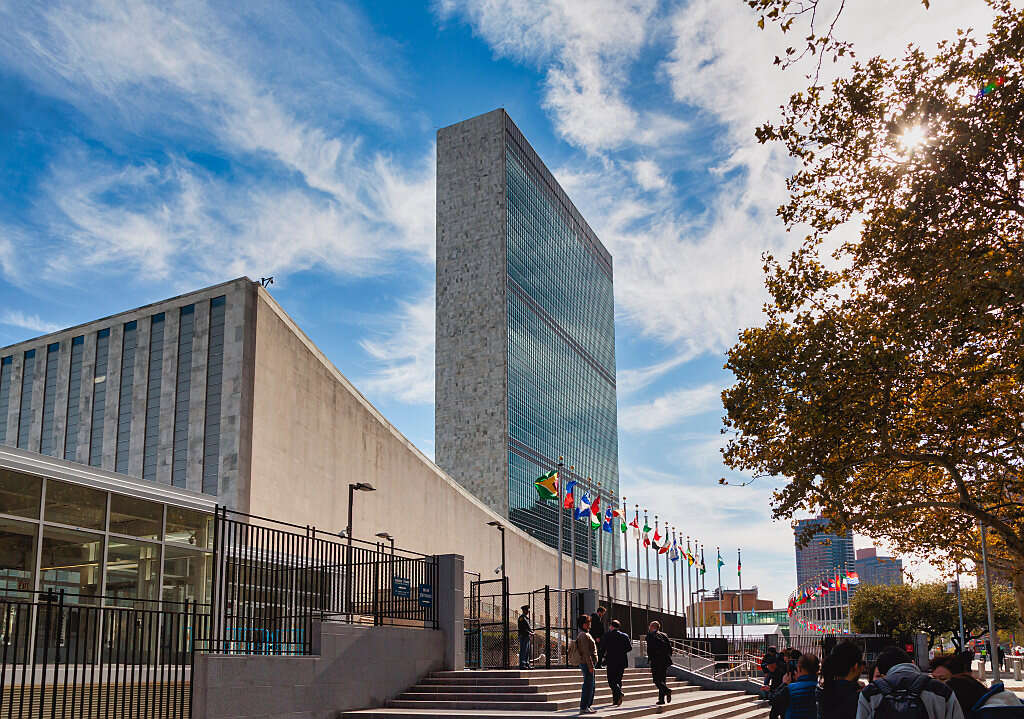
Q: Many call for the US and Israel to remove themselves from the UN because it has become so immoral and biased. What do you say to that?
"It's complicated. There are a lot of decisions that happen there, and the US wants to be there when those decisions are being discussed. I don't think it's likely that the US is going to pull out. It wouldn't necessarily make the UN go away. Other countries are not pulling out. The UK is not pulling out. France is not pulling out. So even if the US pulled out, the UN would continue to be influential because it is the world's main body. Even if you had no UN, there would be other international gatherings, and the same anti-Israel majorities would appear. So, to some degree, you wouldn't necessarily eliminate the source of the problem."
"I'm not saying that we're obliged to stick with the UN always. But the reality is that it's there. A fair question you could ask is whether the UN needs to be in New York. It could be that President Trump might say, 'We're not leaving the UN. But the UN has other offices. Maybe the main headquarters of the UN should move to Nairobi.' Maybe less people are going to take the UN seriously when it's not based in Manhattan. So I think there are some options."
"If Israel were to leave the UN, that would only make its enemies very happy. To be recognized as an independent country, most people assume that you have a seat at the UN. Israel fought so hard in 1949 to be admitted to the UN. And the truth is that if they would leave, it would only gladden the hearts of its enemies. So I don't think that leaving is necessarily really an effective solution to what is a very difficult problem, namely Israel being targeted in such an extreme way."
Q: Where do you think the UN will be in five years' time?
"It will be very interesting to see with the Trump administration. But I hope that we'll have more democracies in the world, and I hope that the democracies will begin to change their approach and hold the UN accountable. To some degree, the UN reflects the kind of world we have, and we have to hope that we're going to have a better world."


